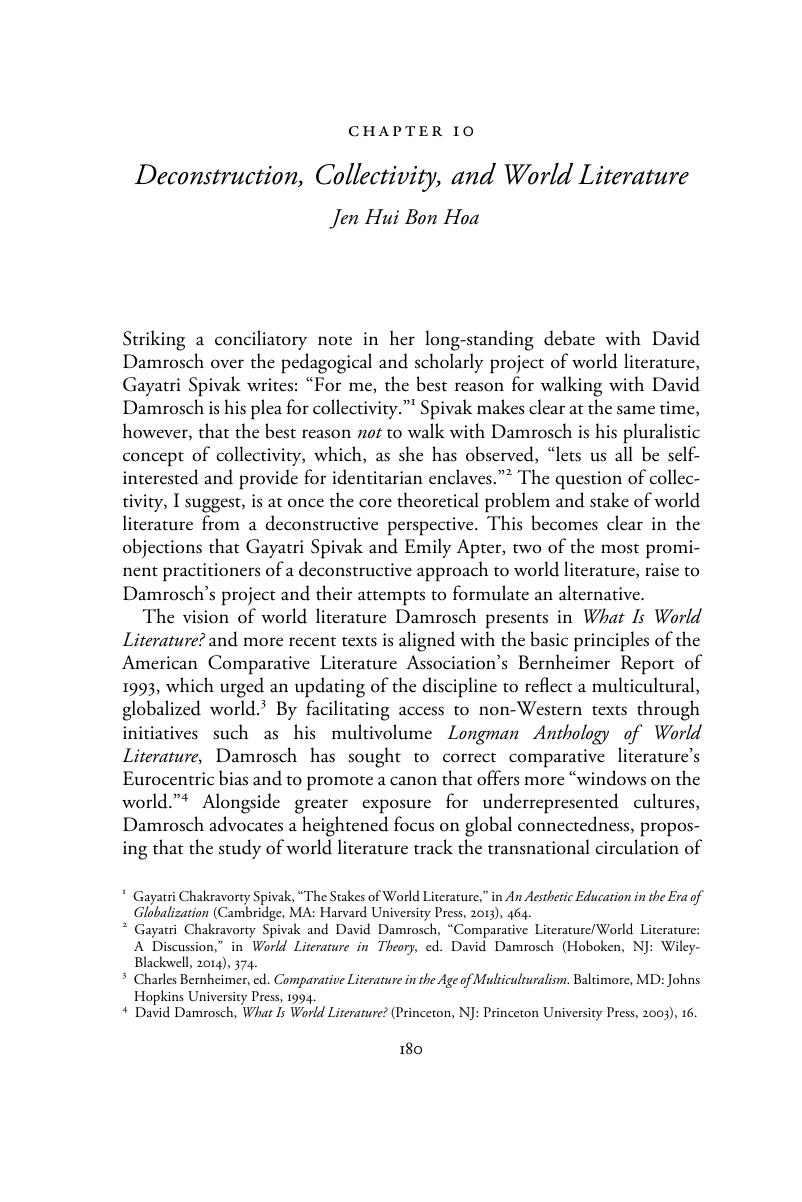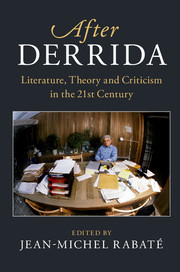Book contents
- After Derrida
- After Series
- After Derrida
- Copyright page
- Contents
- Contributors
- Introduction
- Part I Frames
- Part II Focus
- Part III Futures
- Chapter 9 Ecce animot
- Chapter 10 Deconstruction, Collectivity, and World Literature
- Chapter 11 Literature Calls Justice
- Chapter 12 The Documental Revolution and the Archives of the Future
- Index
- References
Chapter 10 - Deconstruction, Collectivity, and World Literature
from Part III - Futures
Published online by Cambridge University Press: 11 May 2018
- After Derrida
- After Series
- After Derrida
- Copyright page
- Contents
- Contributors
- Introduction
- Part I Frames
- Part II Focus
- Part III Futures
- Chapter 9 Ecce animot
- Chapter 10 Deconstruction, Collectivity, and World Literature
- Chapter 11 Literature Calls Justice
- Chapter 12 The Documental Revolution and the Archives of the Future
- Index
- References
Summary

- Type
- Chapter
- Information
- After DerridaLiterature, Theory and Criticism in the 21st Century, pp. 180 - 196Publisher: Cambridge University PressPrint publication year: 2018

